
But it’s not my first rodeo in Thailand (so to speak). I came to the Kingdom of Siam way back in 1999 as I backpacked around the world with a friend. Thailand had a lot of backpackers and intrepid travelers but was far less commercial then. I was able to attend the last Full Moon Party before the Millennium, don a tuxedo and celebrate the coming of 2000 in Bangkok, exploring the small, virtually unknown mountain city of Chang Mai, and visited the island of Phuket about four years before the epic tsunami nearly wiped it off the map.
Since then, I’ve been back to Thailand many times, attending my good friend Judd Reid’s karate fight camps (and living to tell about it), hanging with my main man, Scotty P, who now lives here, and properly introduced to the island of Koh Samui by my Aussie mate, Clint G.
Through it all, my appreciation of Thailand has grown to respect and, dare I even say it, love.
While I don’t foresee ever calling the country home (but who knows?), here are 15 things that make Thailand so special:
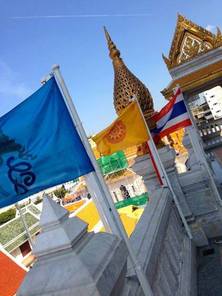
“It’s like I’m in Beverly Hills!”
That’s what I say to my friends who live in Thailand every time I arrive there, as it appears like a remarkably clean, orderly, and well-run society. While they remind me that there is some pollution (and a whole lot of corruption), for me, it is dazzlingly first-class.
Everything works. Everything is simple to get or use. The infrastructure is great. And any convenience you could need steps away.
Then again, I’m usually coming from the stunningly chaotic and disorderly Philippines when I arrive in Thailand these days, but it’s still nice to be in my (poor man’s) Beverly Hills.
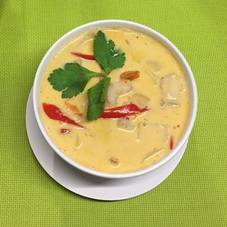
No country on the entire planet has better food than Thailand. In fact, the grub here is so tasty, healthy, abundant, and inexpensive that it boggles the mind. You can find endless great places to eat at the ubiquitous shops, kiosks, stalls, markets, and carts that you don’t even need to step foot into a proper restaurant to get amazing Thai food. Fish, seafood, vegetables, soups, noodles, rice, curries, and fresh fruit are all a part of the daily diet in Thailand, so your body will love you for it.
There is also so much tradition and etiquette that goes with Thai meal times that it almost takes on a ritual-like reverence. In fact, they say that Thai people take so much pride in their cooking that they choose to open up their own eatery instead of patronizing someone else’s!
Just be careful because the food can also be insanely spicy, so ask for “nitnoy” (a small amount) spicy or food good for a “farang” (foreigner).
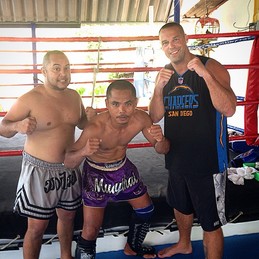
Muay Thai, or the art of eight deadly limbs (punches, kicks, elbows, and knees - times two), may be the national sport in Thailand, but it's more of a religion than an athletic endeavor. That's understandable when you consider that the origins of Muay Thai were around 1238 AD when elite warriors used it to protect from invasion during the Sukhothai Era.
It’s also a big business, with Muay Thai training centers and gyms just about everywhere. Many of them are simple, homemade operations with an open-air ring and some tires and bags to kick right in someone's backyard, but others are internationally renowned fighter factories. Foreigners may find it a tad ruthless, as they start training poor kids from a young age, where they sleep right on the mats at the gym, and aspiring pros often have 100 amateur fights before the age of 18.
But you can still take in a night of live Muay Thai fights at the heralded Lumpinee Stadium or the newer mecca, Rajadamnern Stadium in Bangkok, or in just about every other island or small town.
I’ve even managed to train with one of the all-time greats in Muay Thai, Sakmongkol Sithchuchok, who won eight various championships during his career. After our hour together, he gave me some words of wisdom that I carry with me always. The Muay Thai legend leaned over and told me, “You – no good Muay Thai.”
4. Definitely not Third World
Did you know that Thailand is the only country in Southeast Asia that has never once been invaded and conquered during its history? It’s true, as the Kingdom of Siam (its former name) was never even colonized by Europeans, in times when Vietnam, Cambodia, Indonesia, Laos, etc. were all referred to as Indochina.
It makes for a fascinating case study in the detriment of Colonialism because, now, Thailand is certainly not a Third World (or ‘Developing' in polite society) nation. It has one of the fastest growing economies in Asia thanks to manufacturing that accounts for two-thirds of its GDP, and it ranks as the wealthiest nation in South East Asia.
The Thais are not only better educated, have a higher standard of living, and enjoy stronger cultural sovereignty than their Southeast Asian neighbors, but they also display fierce independence and pride.
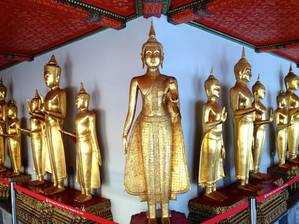
The Thai language is sharp, spirited chatter to the Western ear – almost cartoonish in its inflections and exaggerations. It’s also incredibly difficult to learn, with 4 consonant symbols and 15 vowel symbols that combine with 28 vowel symbols and four tone diacritics, plus a “ka” for women and a “Khrub” for men. Whoa!
Some common sayings include “Sa-wat dee” (hello). Khop khun (thank you), Chok dee (cheers), and som nah na (it serves you right!)
But, for English speakers, there’s also a hilariously juvenile side to the Thai language, with names like Phuket, Bangkok, and billboards proclaiming that you should drink a beverage called “Si Min.” I’m not joking!
6. Buddhism
Buddhism is the predominant religion in Thailand. One of the things I love about Buddhism is that it’s more than just a spiritual practice, but a way of living your life, and there is no competition or conflict with other religions. Practicing Buddhism is also by no means confined to religious days and places of worship (although there are breathtakingly gorgeous and grand Wats – or temples – just about everywhere). Instead, Thais integrate Buddhist rituals and rights into their every day, such as putting out small alters of incense, fruit, coins, and other offerings, greeting each other with the traditional Buddhist “Wai” with two hands to the chest and a slight bow, and a civility and patience that is surprisingly prevalent in their society.
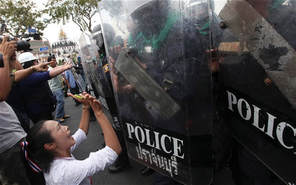
But the King is nowhere near all-powerful in Thailand, as he's one of three pillars along with the other branches of government, the parliament, and the military. That system is fascinating because it's effective but certainly not stable, as there are revolts, rumblings, and outright coups every few years as all three sides jockey for position, forming alliances of two that allow them to take over the country. In fact, Thailand has seen 13 successful coups and 7 attempts to overthrow the government since 1932, or an average of one revolution every 4.3 years!
The last one was in 2014, when the Thai military seized power, creating a military junta that’s ruled ever since. Thankfully, they are usually without large-scale bloodshed (relatively) and more of an inconvenience for travelers and expats than an outright danger. But present-day Thailand has been criticized by human rights groups agencies and internal protestors for its police state that suppresses dissenting political views, criticism of the regime, and lese majeste (speaking poorly of the royal family). They even monitor and police online forums. (Gulp.)
Thailand is surprisingly modern, civilized, and sophisticated, so those who are expecting an impoverished Banana Republic nation are quickly corrected. There is a firm Thai middle class who drive nice cars, live in new houses in well-planned communities, and conduct business. (In fact, Thais are incredibly entrepreneurial, and from local street vendors to huge multinational corporations, Thailand is definitely open for business!). Drive through Bangkok, and you'll see far more digital billboards, high-rise luxury condos, and international banks than you do slums and signs of poverty.
Even Bangkok’s Suvarnabhumi Airport is stunningly next-century, as you can see in this photo and read in this review I wrote for AllWorld.com.
One thing I love about Thailand is the medical care, which is first rate and astonishingly affordable. I've had a host of injuries and maladies treated at hospitals in Thailand (thanks to Judd Reid's fight camp and food poisoning from bad Filipino grub!), and their facilities are sparkling clean, efficiently run, and it seems like three people are working for every patient! That's given rise to a whole lot of expats from the U.S. and many other countries who want to retire to Thailand in part because of the excellent medical care, or who just come for medical vacations, or medi-cations, a fast-rising sector.
For instance, last time I was here in March, I visited the hospital at least a dozen times, seeing plenty of specialists and getting every test known to man (including CAT scans, MRIs, etc.) as they tried to figure out what the hell was wrong with me (thanks again, Philippines food). The total cost for all of that was about $3,000 – which would have easily been $30,000 or way more in the U.S.!
I’m frugal, pennywise, thrifty, and every other adjective you can describe to say that someone hates to unnecessarily part with their money. To put it another way, I’m cheap. So, I fully appreciate when a country offers a lot of value for a reasonable price, and that's definitely Thailand. Between the healthy, clean, and abundant food that's moderately priced, to the good deals on hotels (but better deals on long-term stay condos), medical care and transportation, I can live like a King in Thailand for about $50 a day (roughly 1,600 Thai Baht). I even find Thailand more affordable for better quality and value than traveling in the Philippines, where I currently live.
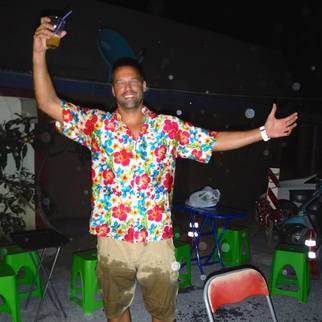
“What the hell did I just see?” That’s a common utterance in one of Thailand’s notorious nightlife districts. From the capital city, Bangkok, to the tourist island of Phuket, the Full Moon Party in Koh Phangan (island), the Sin City of Pattaya, and more, the nightlife, bar scene, and seedy elements are as crazy as you'll find anywhere in the world – and immensely entertaining.
It’s also puzzling for a country that is so conservative and traditional in many other facets of law and society, but, like most things, the paradox can probably be attributed to profit.
But one country-wide celebration that I love that’s fun for the whole family is the water festival of Songkran.
Here’s a good write-up (if I do say so, myself) on Songkran.
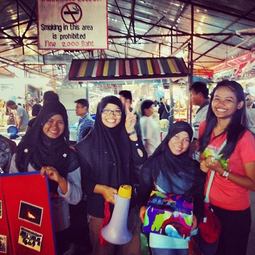
Despite being one of the most homogenous nations in the world, both ethnically and religiously, Thailand is a hotbed of multiculturalism.
Thanks to thriving centuries-old trade to its religious inclusion, ease of opening and doing business, and a high standard of living, people from all over the world come to Thailand to work and live. Most cities have an Arab Quarter or area (where I first stayed in Bangkok in 1999), and you’ll see endless Russians, Europeans, English, Australians, Israelis, more and more Africans, and others walking around every day.
It all blends seamlessly, with Thais at the top of the pecking order and everyone else left to figure it out.
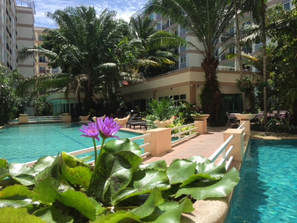
Want to hear something interesting? The Thais have their own version of Las Vegas or Amsterdam, a seaside city called Pattaya only 90 kilometers from Bangkok. While it’s got a less-than-favorable reputation for its Walking Street red light district, the city has actually exploded as a place for couples and families from all over the world to come for vacation. The real estate market in Pattaya is SO hot, they can't construct these towering, glamorous condominium projects fast enough. One is being built right on top of the other, over and over with hundreds of thousands of units for sale.
However, I’d estimate that only about 10-20% of them are ever occupied. Instead of making its money through other vices, Pattaya’s real purpose is as a giant washing machine – laundering foreign money through Thai real estate. People who don't trust their own nation's banks, want to stay off of their government's radar, embezzle funds, make money in narcotics, or just want to benefit from stable foreign currencies can all effortlessly dump their cash into legitimate real estate investments in Thailand.
That’s fine with me, as it drives down prices to the point that I can stay at a gorgeous one-bedroom condo with a pool like a tropical paradise for a whopping price of…about $15 a night.
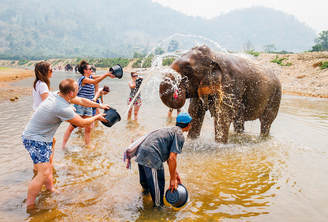
Can you believe that we’ve gone all the way down this list about Thailand without even mentioning the islands and natural beauty yet? Of course, that’s what most travelers best known Thailand for, and you’ve seen the jaw-droppingly gorgeous views of islands, rock formations, and jungle islands in this tropical paradise. Some of the nicest islands in Thailand include Koh (Koh just means ‘island’ in Thai) Samui, which I’ve visited at least once every year thanks to my Aussie Mate, Clint G, Koh Phi Phi, Koh Phanang, Koh Tao, and the aforementioned Koh Phanang.
It’s not just the islands and the geography that’s so impressive, as Thailand boasts plenty of tropical flora and fauna.
That includes world-class scuba diving, wild monkey islands, tiger farms (although many of them aren’t run well responsibly), and elephant sanctuaries that rescue these majestic animals and give them a healthy and happy place to live. These elephants are ecstatic to have visitors, and you can even bathe and play with them in the river (but not ride them).
-Norm :-)
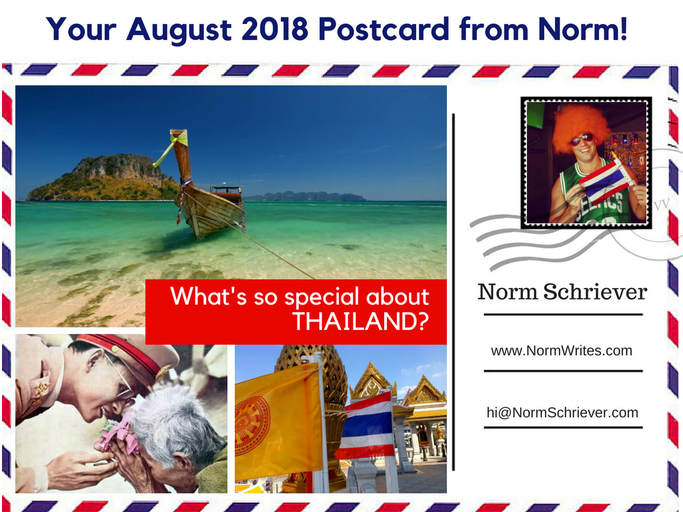
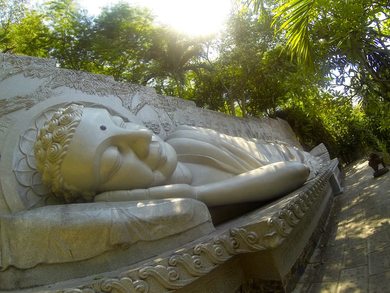
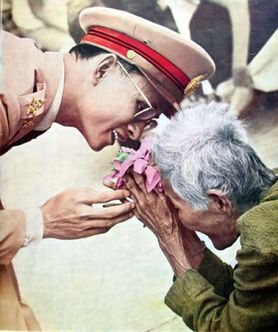
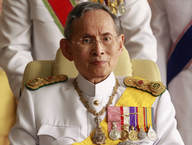
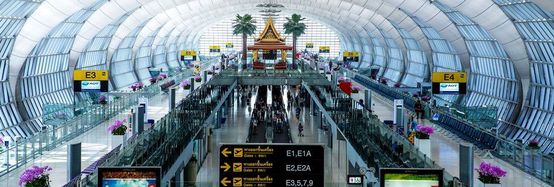
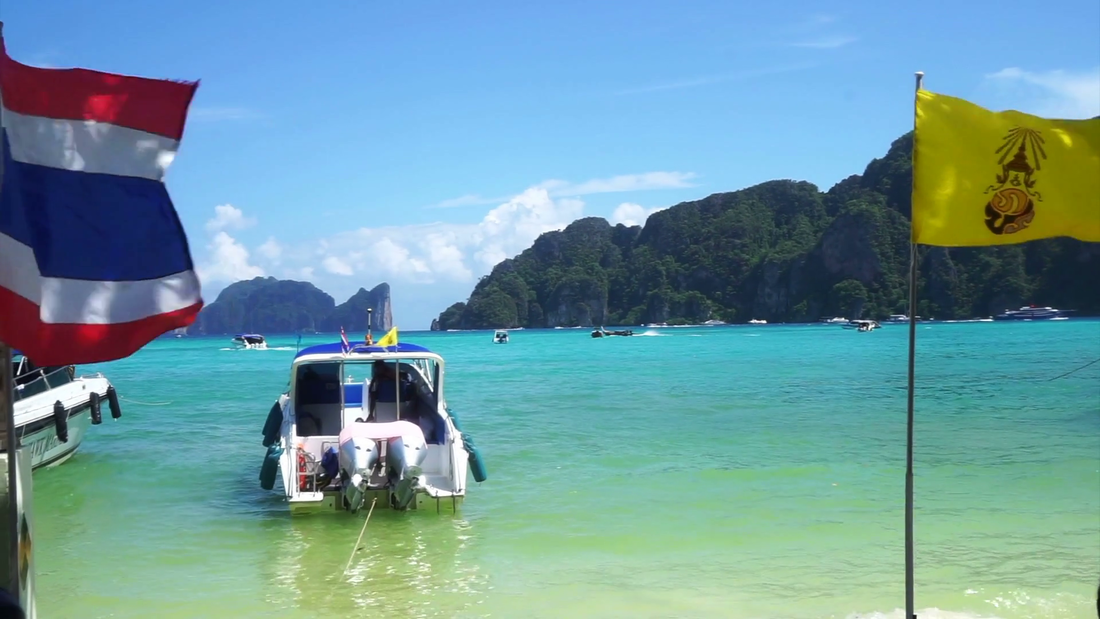
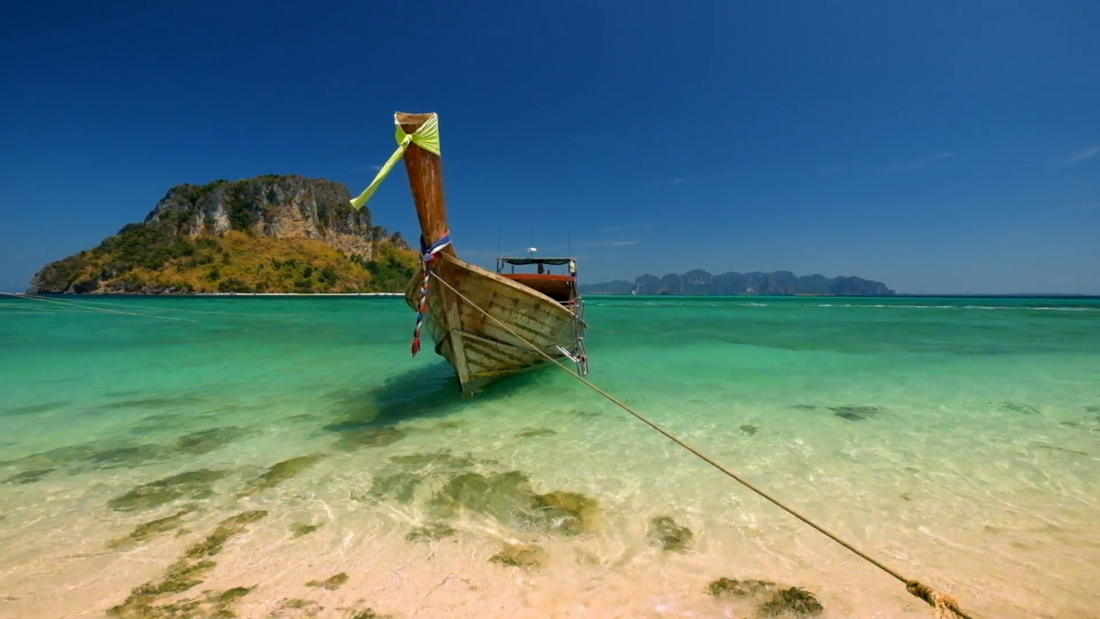
 RSS Feed
RSS Feed